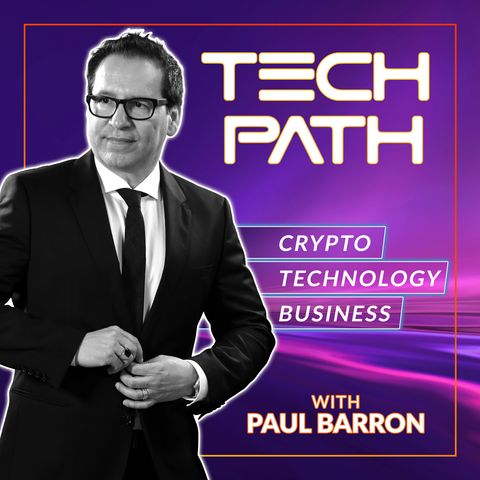1255. CBDC's vs Stablecoins U.S. Hearing | FULL BREAKDOWN

Sep 18, 2023 ·
27m 40s
The U.S. Hearing Entitled: Digital Dollar Dilemma: The Implications of a Central Bank Digital Currency and Private Sector Alternatives is a hearing held by the House Financial Services Committee to...
show more
The U.S. Hearing Entitled: Digital Dollar Dilemma: The Implications of a Central Bank Digital Currency and Private Sector Alternatives is a hearing held by the House Financial Services Committee to discuss the potential implications of a central bank digital currency (CBDC) and private sector alternatives, such as blockchain-based stablecoins.Government-controlled and issued CBDCs have a number of potential advantages, including:
The outcome of the debate over CBDCs and private sector alternatives is likely to have a significant impact on the future of the financial system. It is important to have a well-informed debate about this issue so that we can make the best decision for the future of our economy and our democracy.In addition to the above, here are some other points to consider:
show less
- Increased financial inclusion for underserved communities
- More efficient and faster payments
- Reduced reliance on cash
- Enhanced financial stability
- Privacy concerns: A CBDC could be used by the government to track and monitor all financial transactions
- Centralization risk: A CBDC would give the government a great deal of control over the financial system
- Financial repression: The government could use a CBDC to restrict access to funds or implement negative interest rates
The outcome of the debate over CBDCs and private sector alternatives is likely to have a significant impact on the future of the financial system. It is important to have a well-informed debate about this issue so that we can make the best decision for the future of our economy and our democracy.In addition to the above, here are some other points to consider:
- The 4th Amendment to the US Constitution protects people from unreasonable searches and seizures. Some people argue that a government-issued CBDC would violate the 4th Amendment, as the government would be able to track all financial transactions made with a CBDC.
- Proponents of CBDCs argue that they can be designed to protect privacy. For example, a CBDC could be designed so that users can choose to make anonymous transactions. However, critics of CBDCs argue that it would be difficult to design a CBDC that truly protects privacy, as the government would always have the ability to track transactions if it wanted to.
- The debate over CBDCs is also about the issue of financial inclusion. Some people argue that a government-issued CBDC could help to reduce financial inequality and promote financial inclusion by making it easier for people to access financial services. However, critics of CBDCs argue that a CBDC could actually lead to more financial exclusion, as the government could use a CBDC to restrict access to funds or implement negative interest rates.
Information
| Author | Rever Networks |
| Website | - |
| Tags |
Copyright 2024 - Spreaker Inc. an iHeartMedia Company
